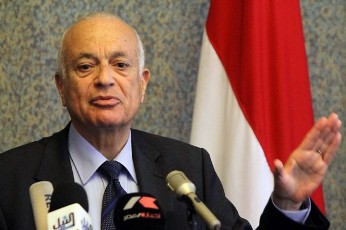Egypt’s FM says country will soon join ICC
April 19, 2011 (CAIRO) – The Egyptian Foreign Minister Nabil Elaraby revealed on Tuesday that his country is in the process of ratifying the Rome Statute which is the founding text of the International Criminal Court (ICC), a step which would likely infuriate Sudan.

Egypt signed the Rome Statute in 2000 but has yet to ratify it, a process which required parliamentary review.
The top diplomat said that Egypt was working hard to become a “legally constituted state” after the overthrow of President Hosni Mubarak last February.
Elaraby pointed out to high-profile arrests of former senior officials from the previous regime which was carried out in recent weeks.
“I think the events that have taken place in Egypt in recent days and the arrest of senior officials is evidence that the state wishes to follow the rule of law… domestically and internationally,” the former judge at the International Court of Justice (ICJ) said.
Mubarak is under arrest in a hospital in the Red Sea resort of Sharm el-Sheikh, where he fled with his family during the popular uprising that toppled his regime.
His two sons, Alaa and Gamal, and dozens of senior former regime figures are in prison or being investigated over allegations of violence against protesters and corruption.
Egypt followed the path of Tunisia which also saw a popular uprising last January that toppled the regime of Zine el Abidine Ben Ali who stayed in power for 23 years. Tunisian authorities issued an international arrest warrant for Ben Ali and his second wife Leila Trabelsi on January 26. The International Police Organization (Interpol) issued a global alert for them. Furthermore, 33 members of Ben Ali’s family were arrested on suspicion of plundering the nation’s resources.
Tunisia issued a decree last February ratifying the Rome Statute which would pave the way for it to become the 115th member of the ICC. The government will need to deposit its instrument of ratification with the United Nations Secretary General for it to become official.
The move by both Arab countries to join the world court means that they will have an obligation to arrest Sudanese president Omer Hassan Al-Bashir who is wanted by the Hague tribunal on charges of crimes against humanity, war crimes and genocide he allegedly committed in Darfur.
But Mahmoud Ezzat, chief of judicial administration at the Egyptian Foreign Ministry, was quoted by independent Al-Masry Al-Youm as saying that the Sudanese leader would still be safe from arrest in Cairo even if they join the ICC.
He justified this stance by saying that Bashir has not been convicted yet by ICC and remains a suspect which means that Egypt has no obligation to arrest him.
The Rome Statute mandates that members states shall cooperate with the court in executing the arrest warrants.
Following Bashir’s indictment, Sudan launched a diplomatic offensive after which it won the backing of Arab and African countries against the ICC which it labeled as a product of western neo-colonialism.
Two Arab ICC members namely Djibouti and Comoros Islands vowed in the past to allow Bashir to visit without apprehending him. But Jordan, a third Arab member, declared its intention to stick to its obligation under the Rome Statute.
Last February, the United Nations Security Council (UNSC) unanimously referred the situation on Libya to the ICC which marked the second time it invoked its power since asking the court to investigate alleged crimes in Darfur six years ago.
A wave of unrest sweeping the Middle East and violence associated with it has given rise to calls by local population there to ask for ICC’s intervention.
In a related issue, the Qatari government extended an invitation to Sudan to take part in an ICC conference taking place next month in Doha.
Sudan official news agency (SUNA) said that justice minister Mohamed Bushara Dousa received the invitation through the Qatari ambassador in Khartoum.
The conference was originally scheduled for early October but was postponed under pressure from Sudan which was angered by what it saw as granting legitimacy to the ICC in the Arab world.
(ST)
